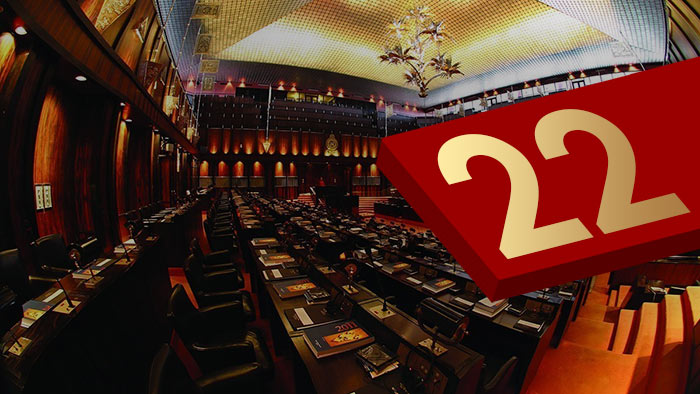Sri Lanka introduces reform bill to clip presidential powers

Sri Lanka’s justice minister submitted a proposed constitutional amendment to Parliament on Wednesday that would clip the powers of the president, a key demand of protesters calling for political reforms and solutions to the country’s worst economic crisis.
The action came as former President Gotabaya Rajapaksa, who fled violent anti-government protests last month, was reportedly seeking to enter Thailand from his temporary exile in Singapore. He fled Sri Lanka last month after thousands of angry protesters stormed his official residence, holding him responsible for the country’s economic woes.
A Thai Foreign Ministry spokesperson said Rajapaksa would be allowed entry but had not asked for political asylum. However, Thai Prime Minister Prayuth Chan-ocha said Rajapaksa was seeking asylum in a third country, which he did not identify.
Rajapaksa was unavailable for comment.
In Sri Lanka’s capital, Colombo, Justice Minister Wijayadasa Rajapakshe presented a bill that would transfer some presidential powers – including those to appoint independent election commission members, police and public service officials, and bribery and corruption investigators – to a constitutional council comprising lawmakers and respected non-politicians. The council would then recommend candidates for appointments that the president could choose from.
Under the proposed amendments, presidents would only be able to appoint chief justices, other senior judges, attorney generals and central bank governors on the recommendation of the council. The prime minister would recommend appointments to the Cabinet and the president would not be allowed to hold any ministry positions except defense.
The bill, which will undergo debate, must be approved by two-thirds of Sri Lanka’s 225-member Parliament to become law.
If passed into law, the amendments would reinstate democratic reforms made in 2015. Rajapaksa reversed those reforms and concentrated power in himself after being elected in 2019.
Current President Ranil Wickremesinghe, who succeeded Rajapaksa, has promised to limit the powers of the presidency and strengthen Parliament in response to the protesters’ demands.
In Thailand’s capital, Bangkok, Foreign Ministry spokesperson Tanee Sangrat said the Sri Lankan government had requested that Rajapaksa be allowed to enter. After fleeing Sri Lanka last month, Rajapaksa first went to neighboring Maldives in a Sri Lankan military plane and then to Singapore.
(AP)

Latest Headlines in Sri Lanka
- CID obtains 90-day detention order on Pillayan April 12, 2025
- Sri Lankan Tri-Forces continue Humanitarian Mission in Myanmar April 12, 2025
- Ranil Wickremesinghe summoned over 2016 fixed deposit withdrawal case April 11, 2025
- Trade War: China raises tariffs to 125% in response to Trump’s 145% tariff hike April 11, 2025
- IMF praises Sri Lanka’s economic recovery, urges continued reforms April 11, 2025



Bravo Wijayadasa, you rock! This is indeed a step in the right direction! As the saying goes “absolute power corrupts absolutely” and this, if passed, should ensure going forward that we will see drastic curtailment of such toxicity in our beloved motherland!